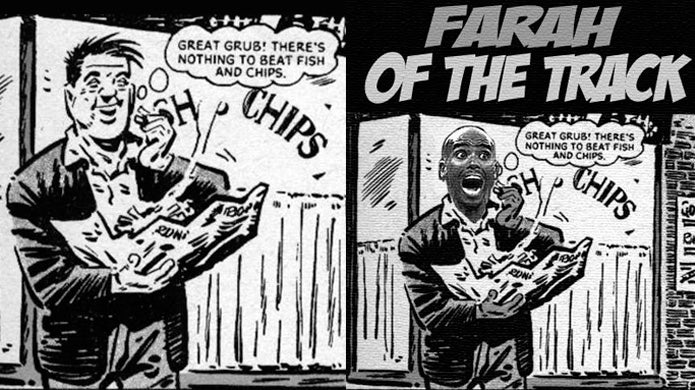Recovery, what recovery?
- General News

Things have come a long way since my best running days which would include my first marathon in 1961 up until my last marathon in 1996 and the thirteen years beyond that up to the present day. In all that time I have never considered recovery in terms of nutrition and hydration.
From 1964 to 1975 I ran to work and back during the week and that included a couple of hard training sessions of ten or twelve miles. Looking back, as soon as I got home I would sit down to a dinner which always included some form of protein, fish or meat plus carbohydrate, potatoes, pasta or rice together with fresh vegetables or greens. One of my favourite meals is fish chips and mushy peas. I call this my “ Alf Tupper “ dinner and have been eating this every Thursday since about the age of ten years when I was a lad in Accrington. As for Saturday competitions, and there were always plenty of those from cross-country to track and road races, of any distance up to twenty miles and the recovery there was the long Sunday run, except after a twenty mile race of course. These long runs, 20.5, 23 and occasionally 28 miles were taken at an easy pace and without carrying water. During my very best years I would supplement my diet, last thing at night, with a pint of Complan, a “complete” food plus Casilan a high protein compound, in a pint of milk. Also I had daily vitamin and mineral tablets.
After marathons I would never have anything prepared but just take water if I was thirsty. After a marathon I would take a month of easy running, twice a day, once on Sundays, with weeks of 30, 30, 40 50, all short runs obviously, which left me totally refreshed to begin a training period of ten to twelve weeks to my next target race.
I never stretched, had any medical back-up nor had massages. I would never go near an ice bath ! I did not have the money for anything but running. However it seemed to work.
From what I have gleaned recently our distance runners have many techniques to help them reach their full potential. Altitude training. Warm weather training. Time to get the sleep that they need. Plus I understand that after hard training sessions and hard races they must have a recovery drink containing protein and carbohydrate immediately.
After last year’s BUPA 10 K in Manchester I was speaking to Ian Stewart who was head of distance running for the London Olympics who told me about the advantages some of our distance runners have today and finished by saying, “ If you would have had all that you would have run 2:05 for the marathon.”. A pleasant thought !
